
Ripthorn
-
Posts
604 -
Joined
-
Last visited
-
Days Won
7
Content Type
Profiles
News and Information
Tutorials
Product Reviews
Supplier Listings
Articles
Guitar Of The Month
Links and Resources
Forums
Gallery
Downloads
Posts posted by Ripthorn
-
-
Depending on the finish, it may not be conductive (thinking something like black, but perhaps they will still conduct, I honestly don't know). I am making it so that my saddles on my multiscale are not quite touching.
-
Too bad I didn't know about these a month ago. I just finished making a set of 6 for my current multiscale. Oh well, one lives and one learns.
-
Well, made some more progress. I drilled 1/16" holes for the string through portion, pots and switches (went with option
 , and drilled for neck screws and ferrules. I also routed the control cavity and the neck humbucker cavity (hopefully this will result in a cool aesthetic effect, more to come). I didn't get the bridge one routed due to the fact that I ran out of double sided tape. Some pics:
, and drilled for neck screws and ferrules. I also routed the control cavity and the neck humbucker cavity (hopefully this will result in a cool aesthetic effect, more to come). I didn't get the bridge one routed due to the fact that I ran out of double sided tape. Some pics: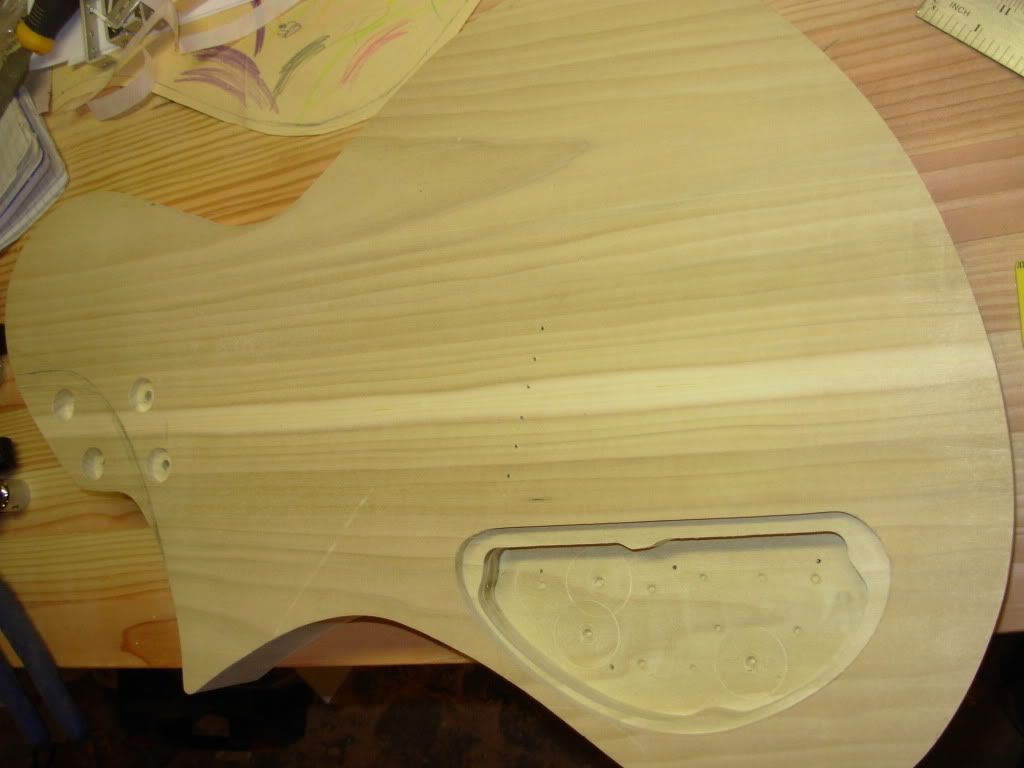
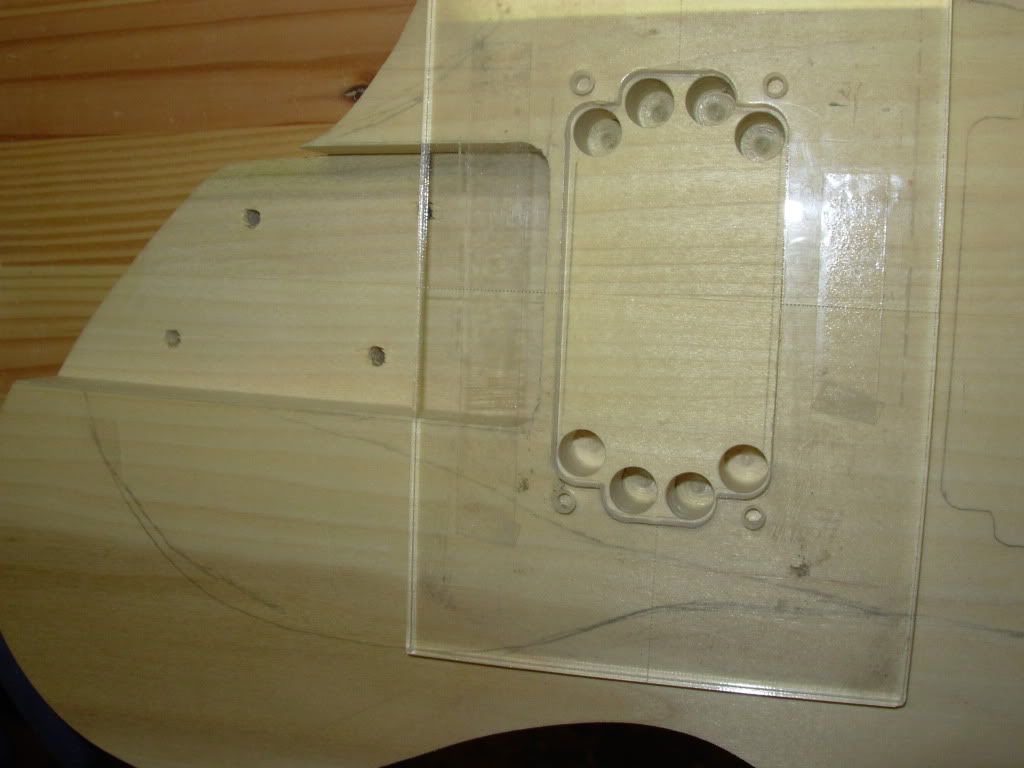
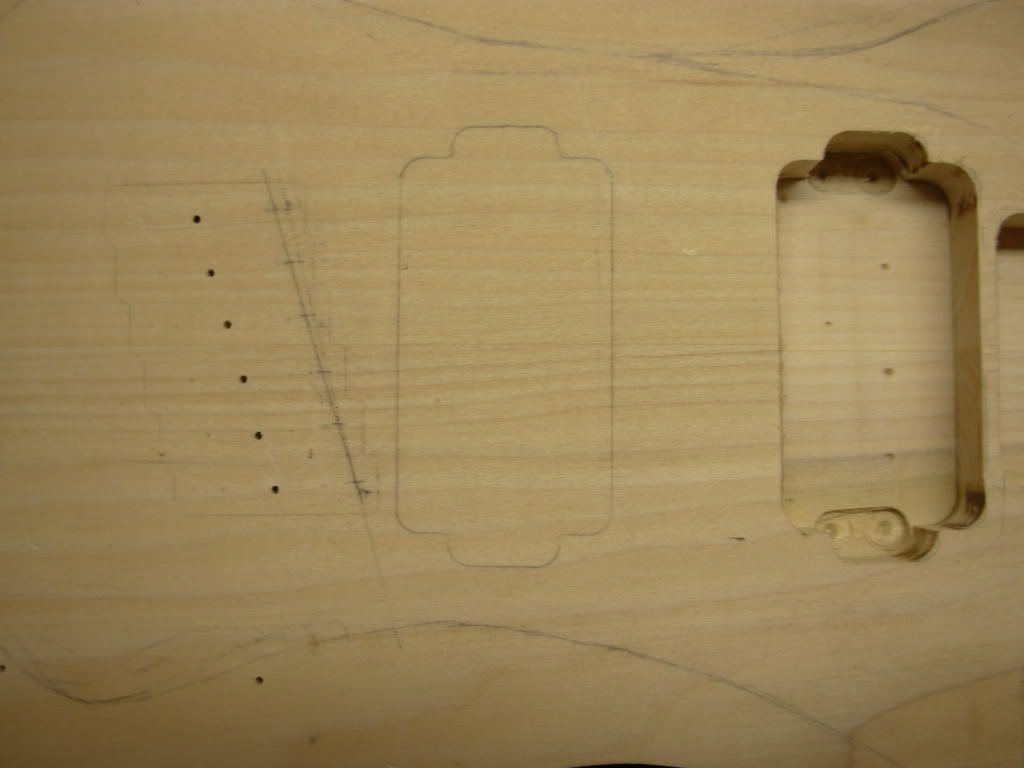
Now, concerning the last pic, I have two questions: 1) does the neck humbucker look like it will be too close to the bridge (pencil outline visible) and 2) on a body style like this, how would you do the flat for the carve? I am having trouble figuring out just how it should look. Here is another look at what I am thinking so far:
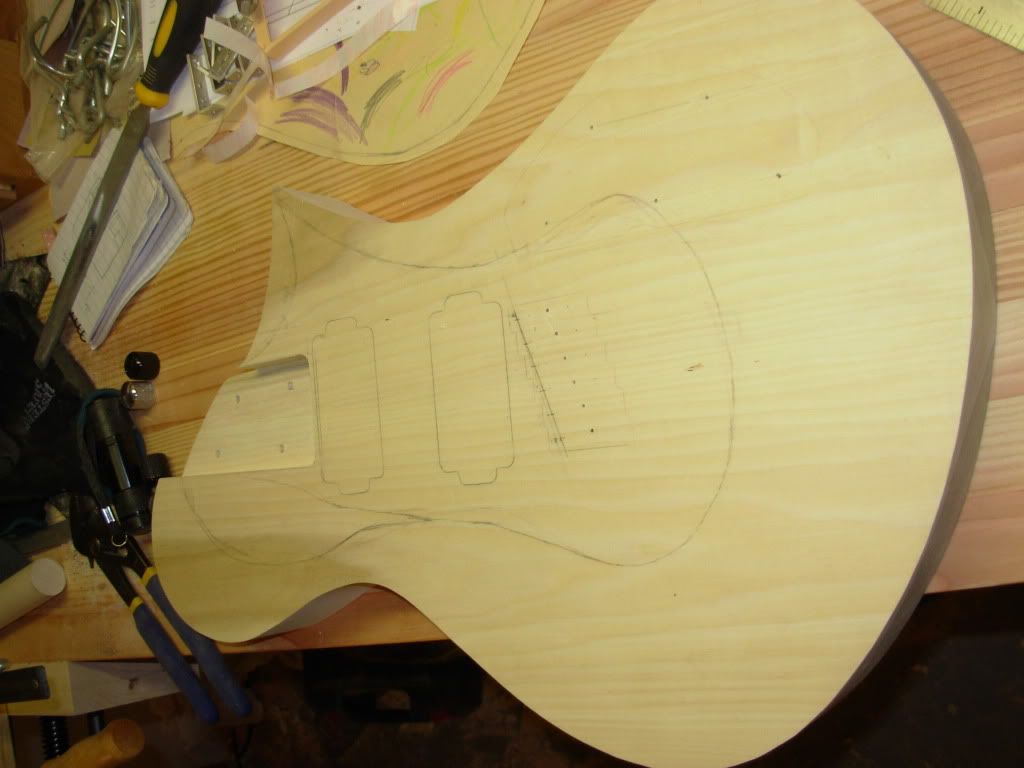
-
 1
1
-
-
The string spread at nut and bridge is perpendicular to the center line. I am working on my first multiscale right now and used fretfind2d to do the layout. Worked great.
-
Okay, so a little more progress. The bridges were a little wide, so I had to belt sand them to the right width. Got them all squared away and placed on the body along the stagger, so it looks a little like this:
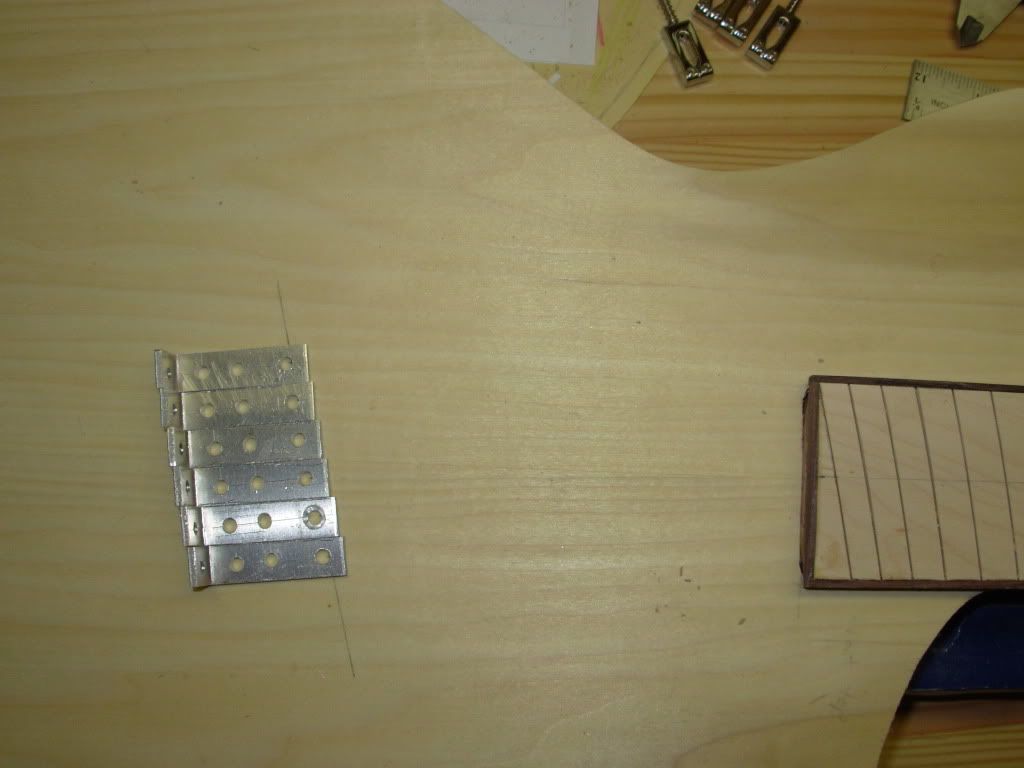
Now, the next thing for me was to try to determine the control layout. There will be four knobs: two volume and two stacked tone. There will also be a three way selector. I have four possibilities:
A:
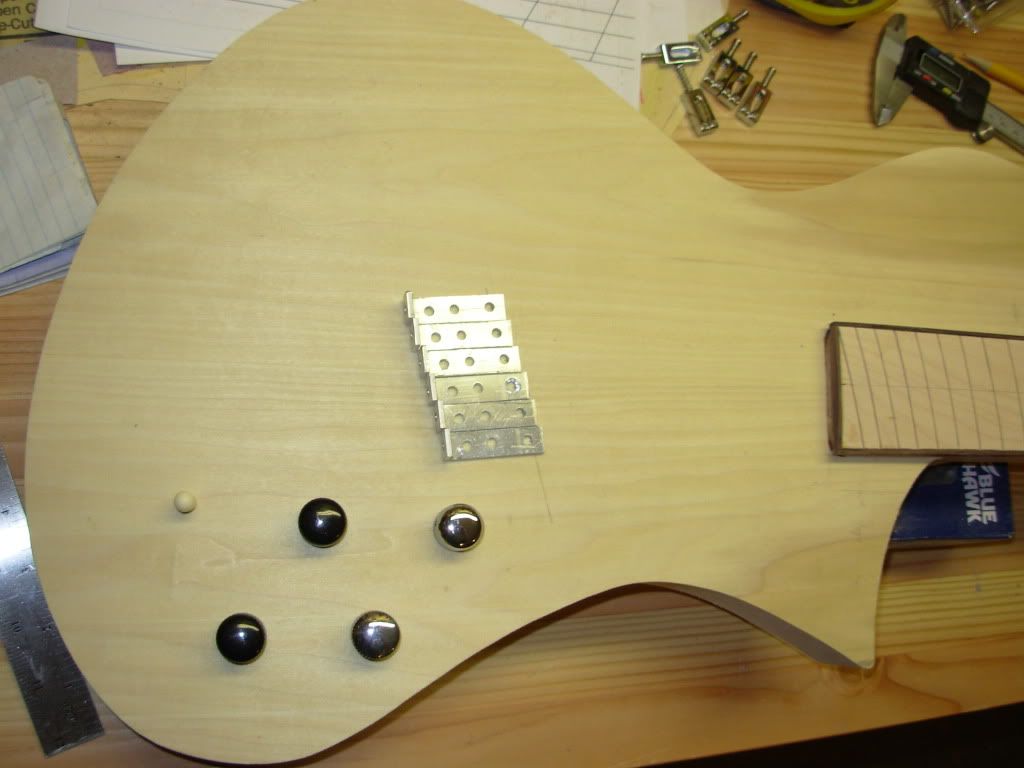
B:
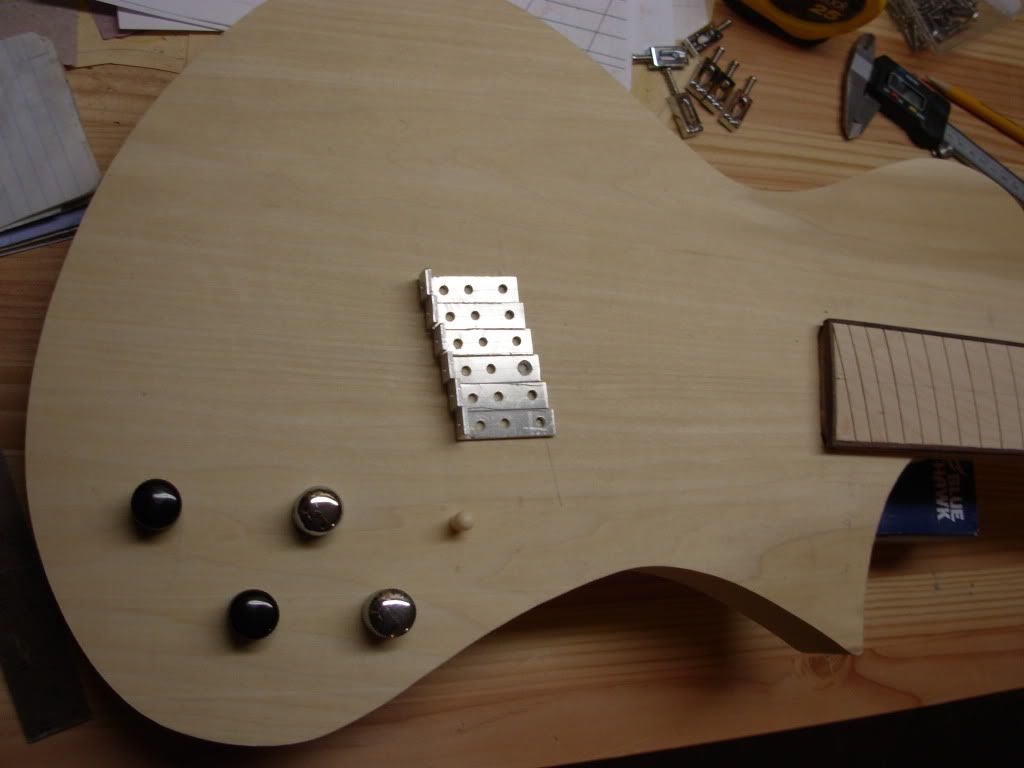
C:
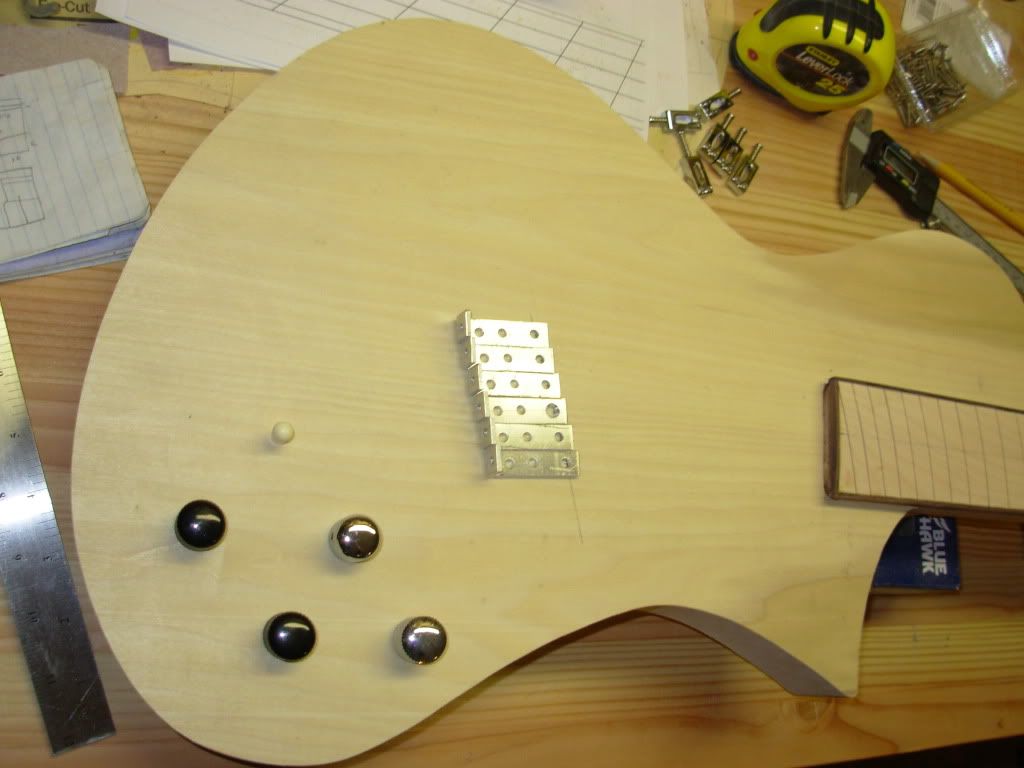
D:
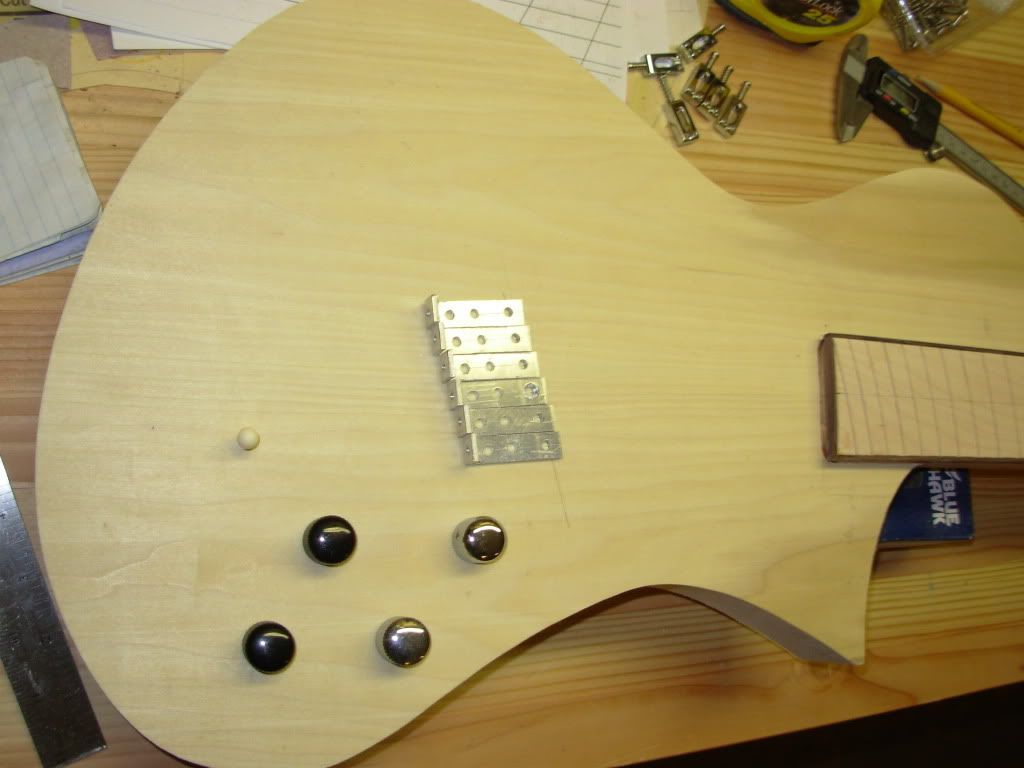
They are fairly similar. I have two favorites, but I want to see what you all think first. Once I have this determined, then I can start on more body work.
-
I recently carved a neck where the fretboard is standard, but the back of the neck has a flat spot that twists along the length of the neck. It is fairly subtle, and the guitar isn't finished yet so I can't comment on comfort, but it sure has been a fun science project.
The neck that NotYou refers to above is the torzal twist neck (or at least that is one of the major players in that market). Strange looking stuff, that is.
-
I used cherry in the neck of a guitar that I built for my daughter for Christmas last year and I think it turned out pretty well. I also had a nice looking piece of gummy black cherry that was just begging to be a neck, so I obliged. We'll see how the final tone comes out, but I am optimistic that it will sound good. Also, I tend to like brighter guitars, so maybe this will work to my advantage.
-
The bimetal blade cuts really smoothly, you just have to make sure to hold the piece against the "table" top really securely, and worked amazingly well.
-
Alright, I made some more progress on this bad puppy. I got the fretboard glued on, though I almost did so before doing the truss rod access. Ended up with this for the rough TR access:
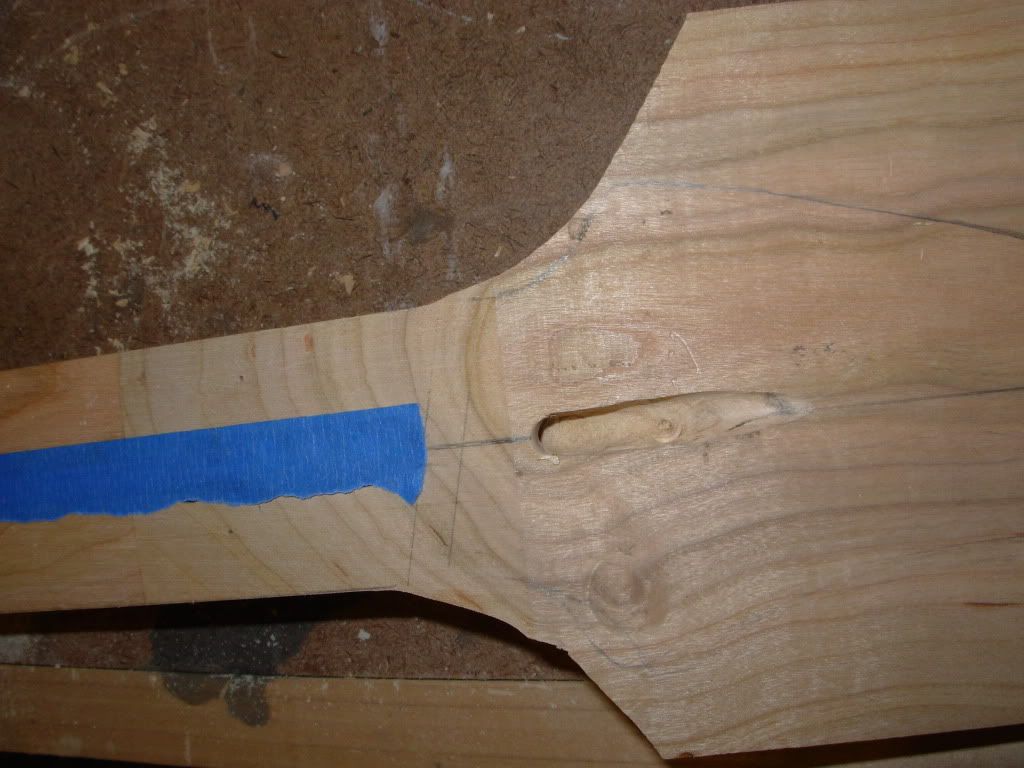
And then the obligatory "not quite every clamp in the shop, but close" photo:
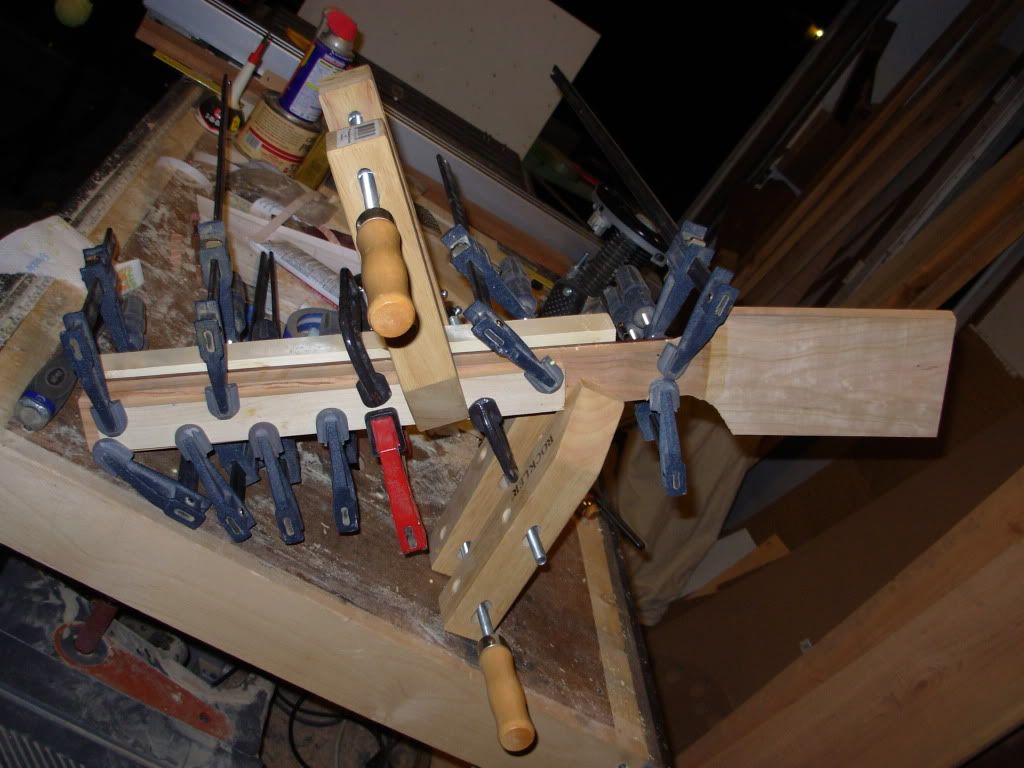
I also cut out a blank for the inlays at the 12th and 24th frets. This came from a sweet piece of indian rosewood:
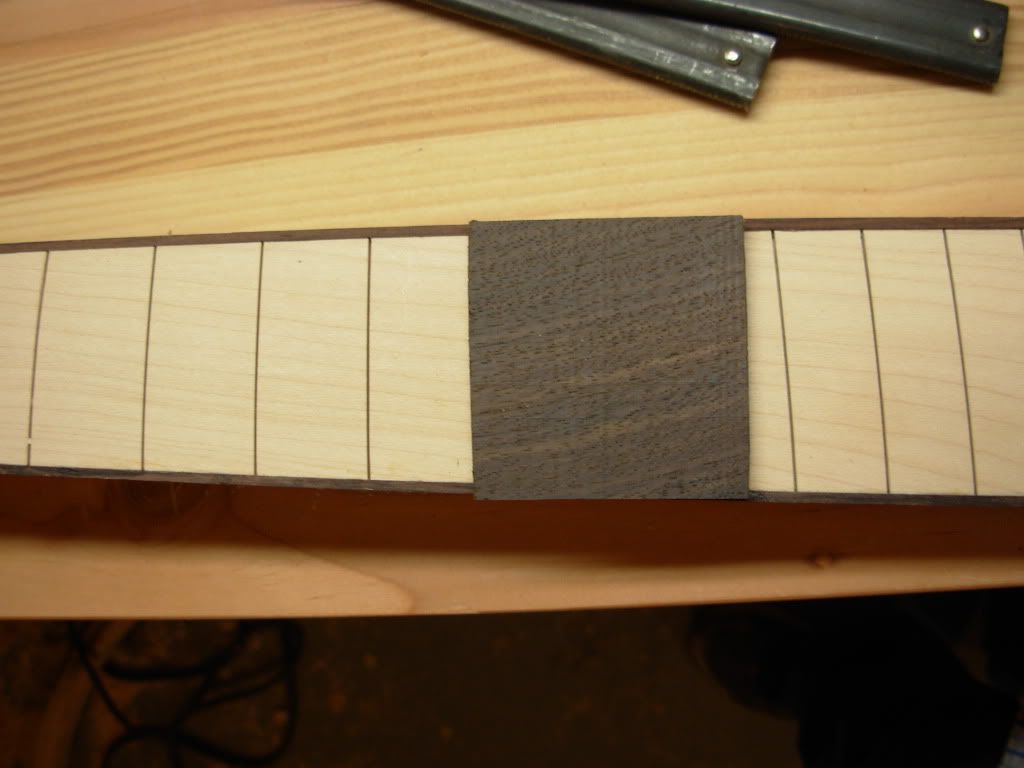
Now, one of the difficult things about multi scales is the general lack of hardware such as bridges. Well, if we take something like this:
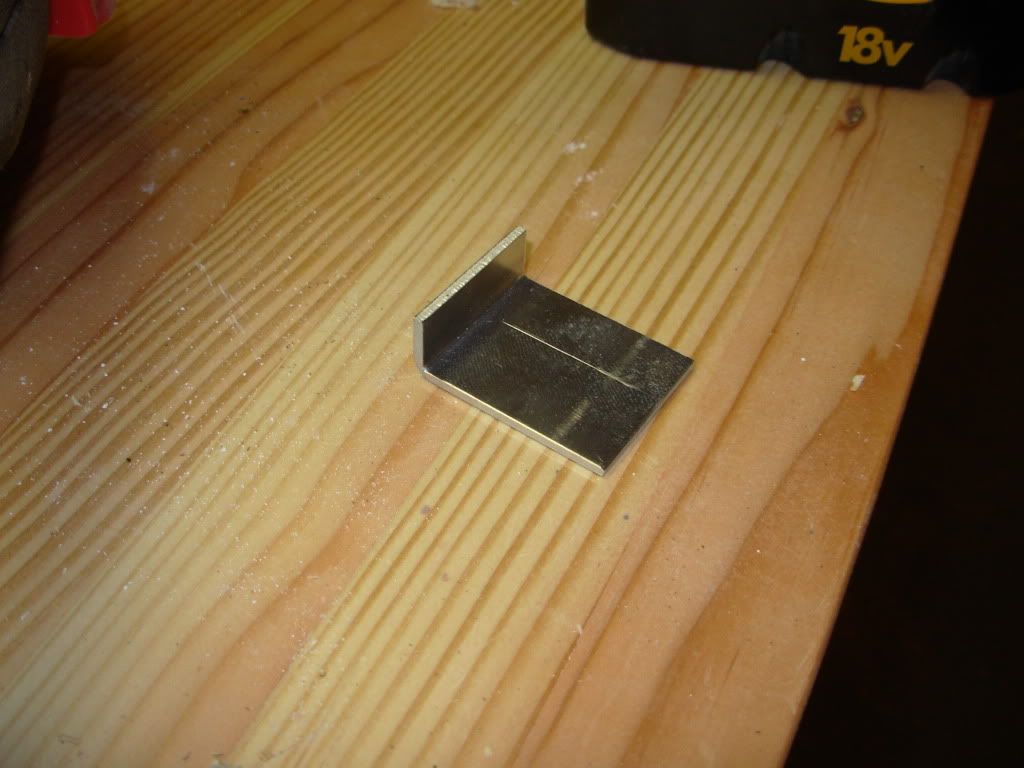
And we use something really ghetto like this (which I do not advocate as a particularly safe solution, though it does take the place of a metal bandsaw in certain situations, and I thought the uber ghetto rope footswitch control was particularly foolish/ingenious):
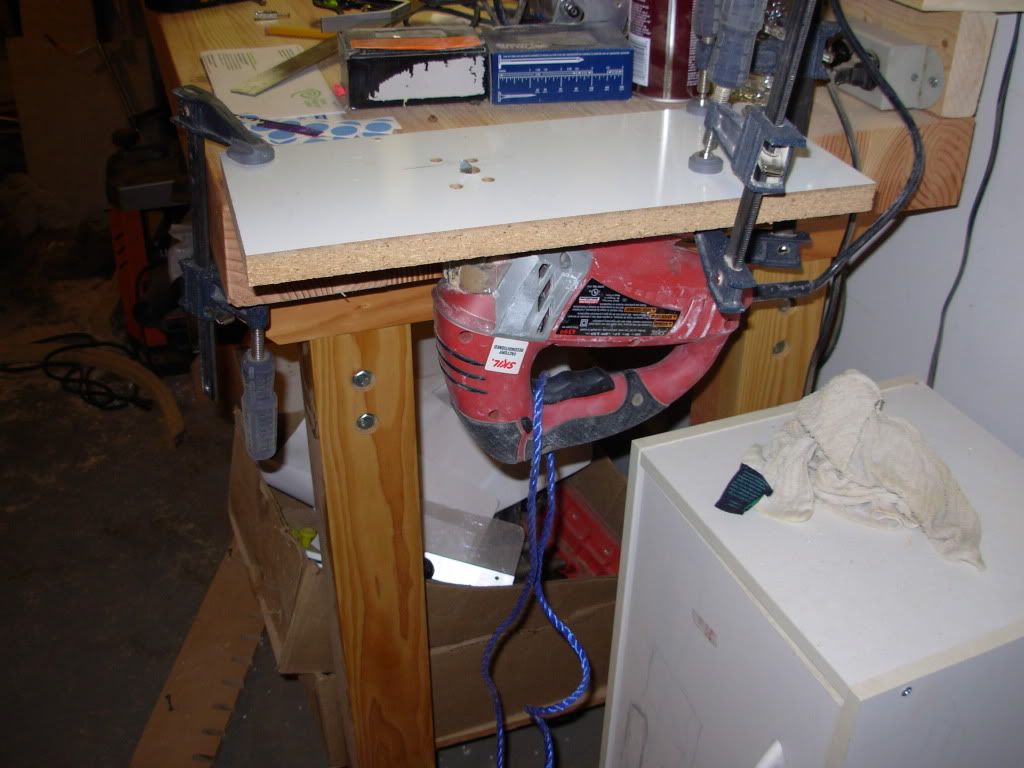
Then we end up with these:
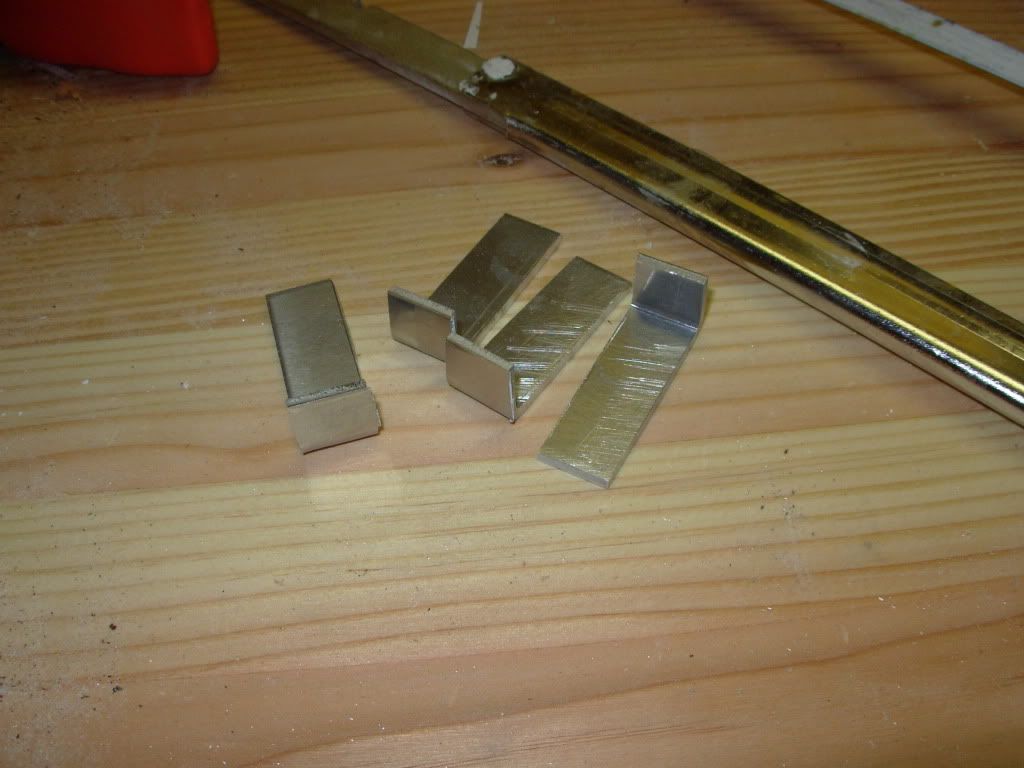
With the intent of becoming these (as yet unfinished):
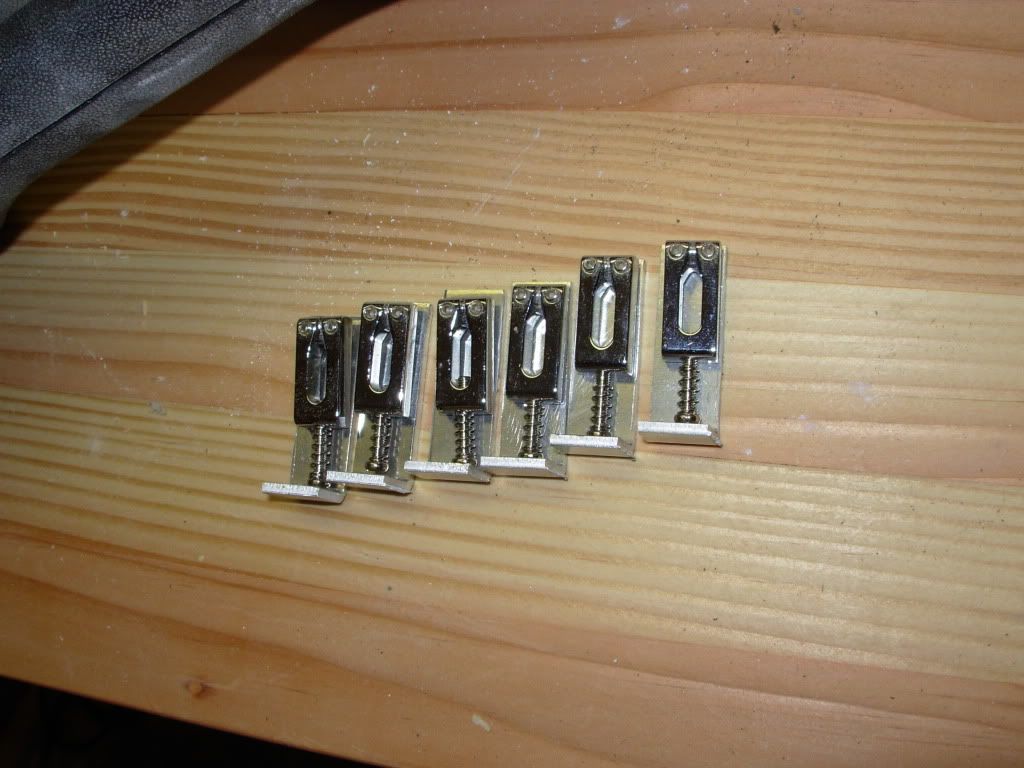
And, to keep the fingers safe for cutting the last piece, don't use the upside down jigsaw thing-a-mabob, but use one of these:
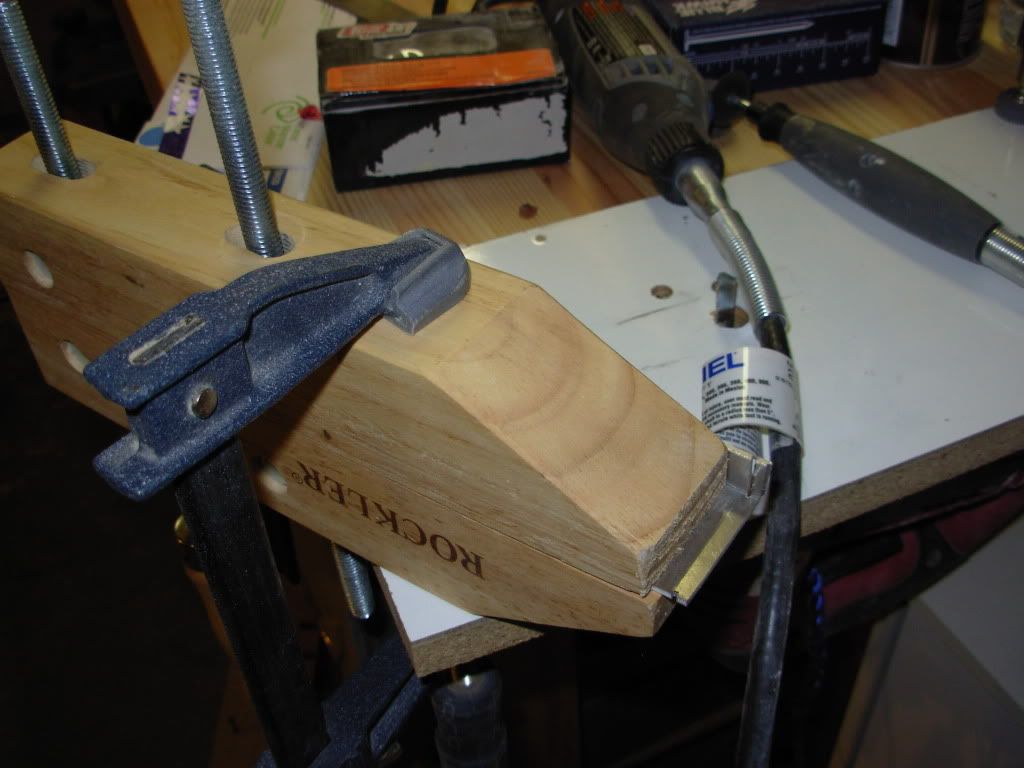
-
 1
1
-
-
So I got the bug to build a multi scale a while ago, which happened to coincide with me seeing a lower bout on a parlor acoustic guitar that I loved for a single cut design. Throw in to the mix the fact that I have never done a single cut, and it was all down hill from there. Now, I wanted to do this with quality materials, but not expensive ones. So the woods are good quality, but nothing terribly special, I will be making some of my own hardware, etc. Trying to keep cost manageable.
Specs:
- Carved-top poplar body
- Cherry neck
- 26 fret maple fretboard bound with Indian Rosewood
- 12th and 24th inlays, no face dots, etc.
- 4x2 headstock
- 2 single coil sized rail humbuckers
- Treble and Bass passive tone controls for each pickup
- Volume for each pickup
- Deep blue metallic body
Anyway, some progress pics of where I am so far:
Body shape:
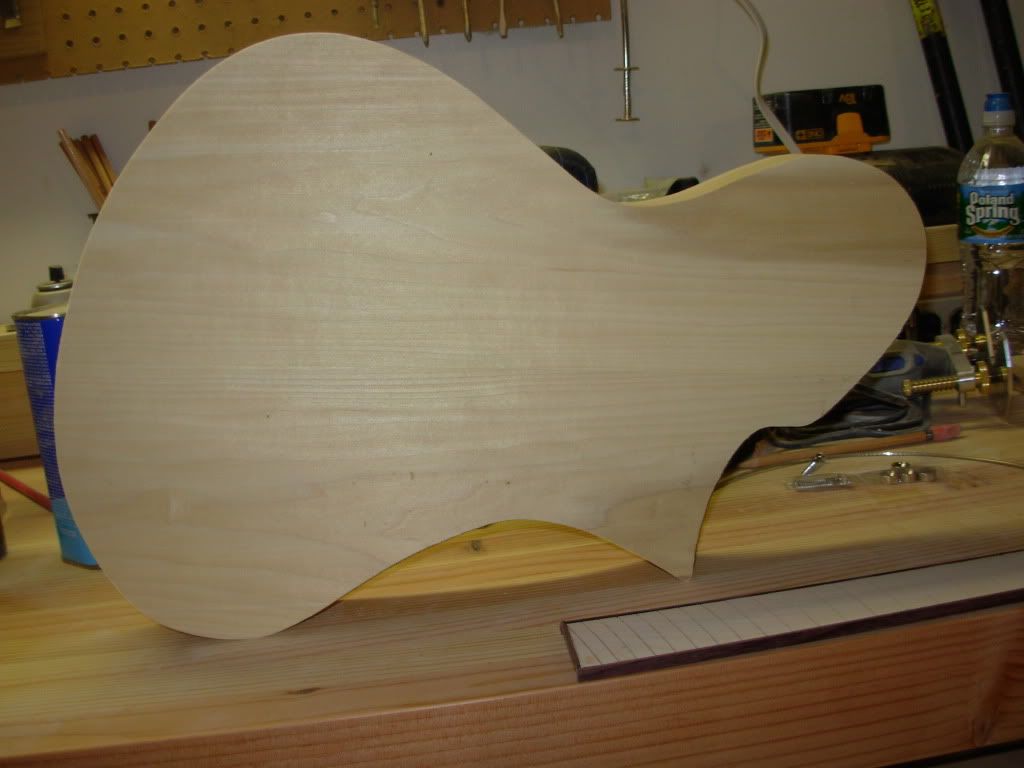
Fretboard:
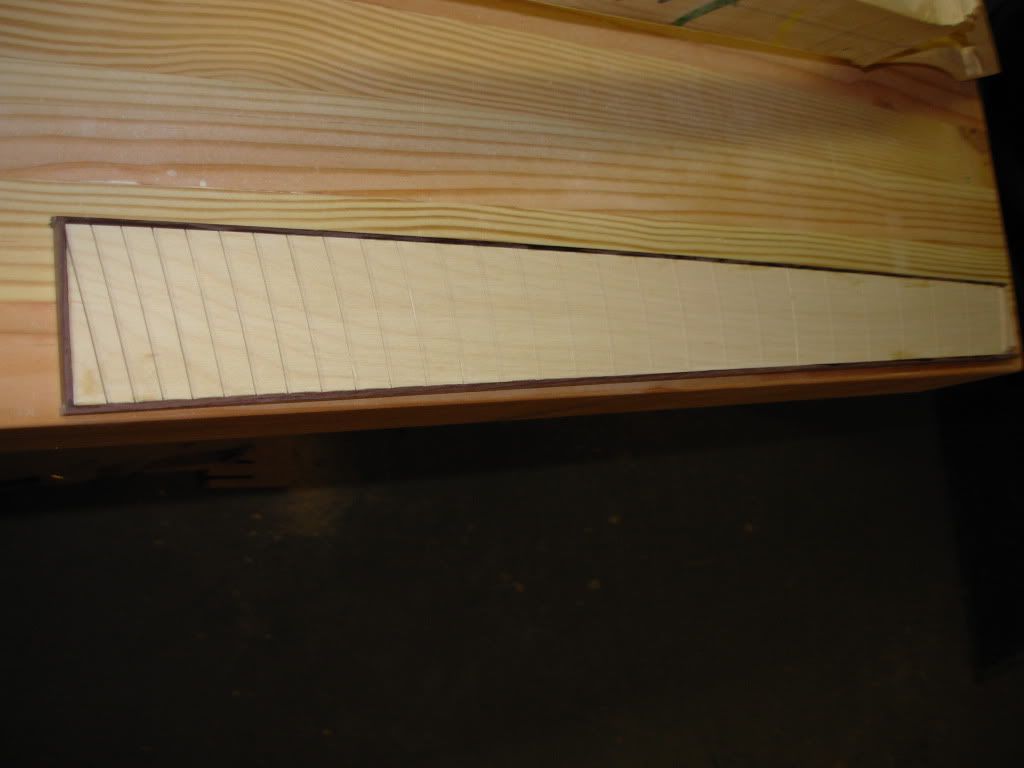
Roughed out neck pocket:
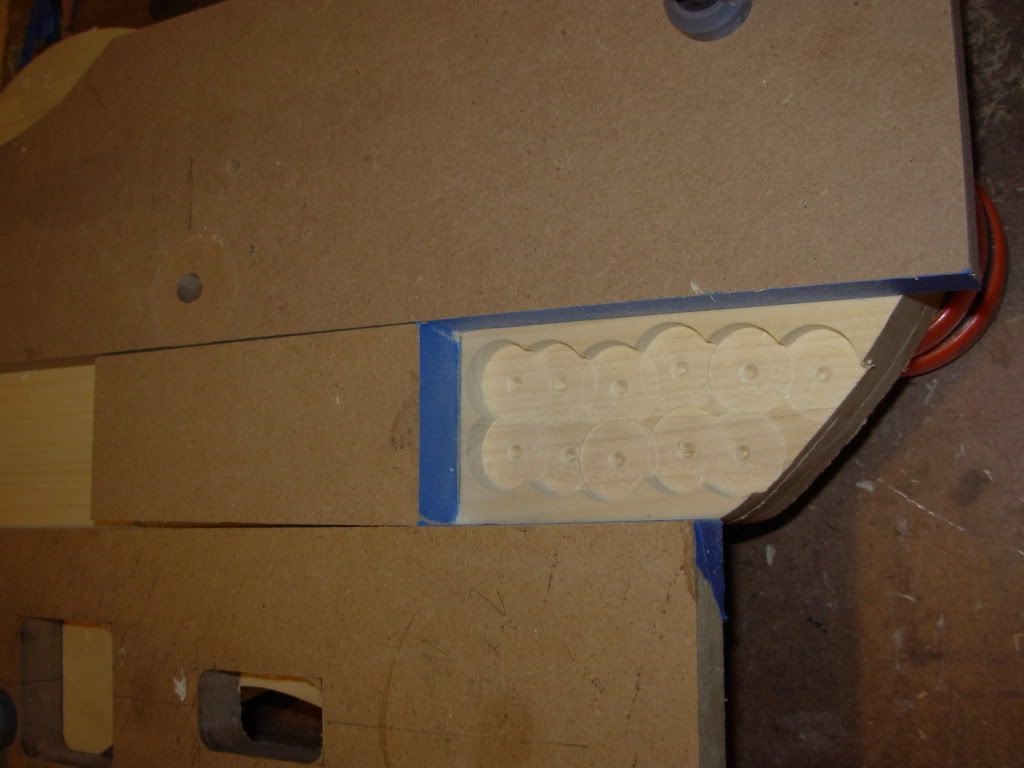
Cleaned up:
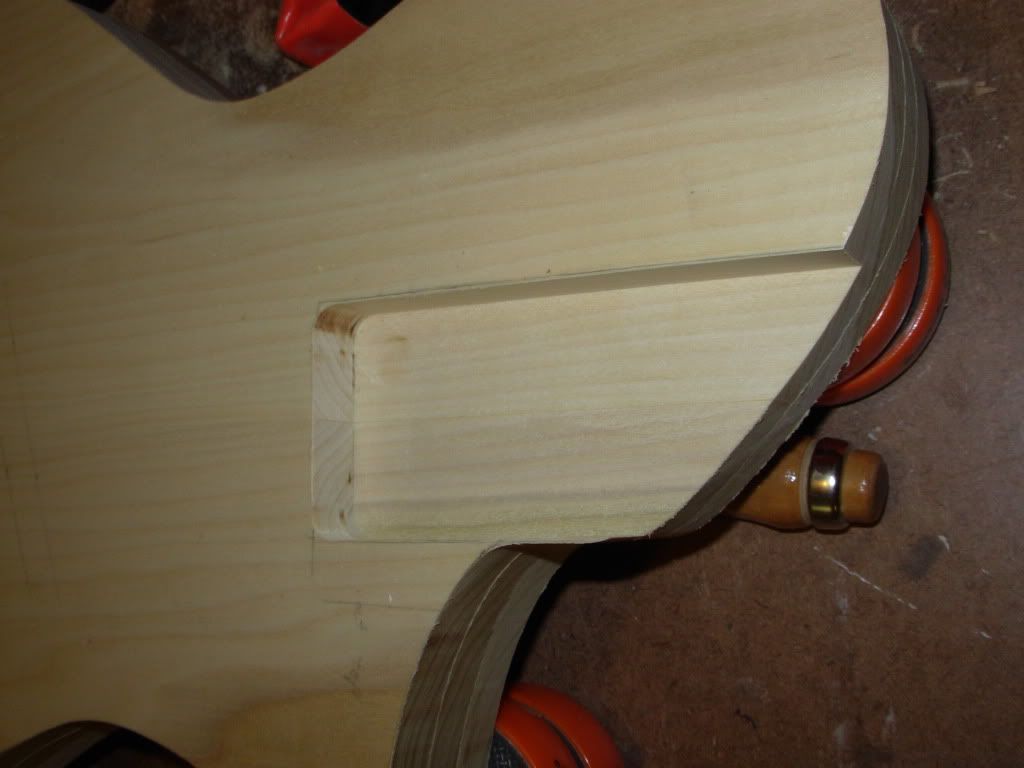
Should make a strong joint (yes, this is the "Look Ma, no screws or glue!" shot):
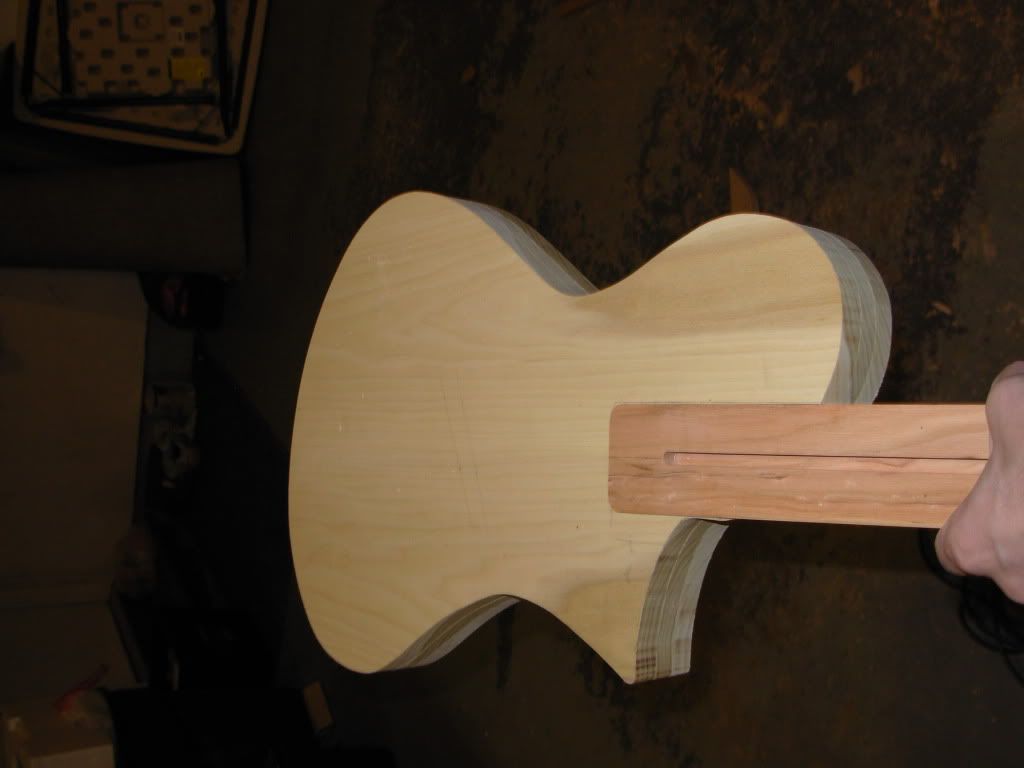
Quick mockup thus far:
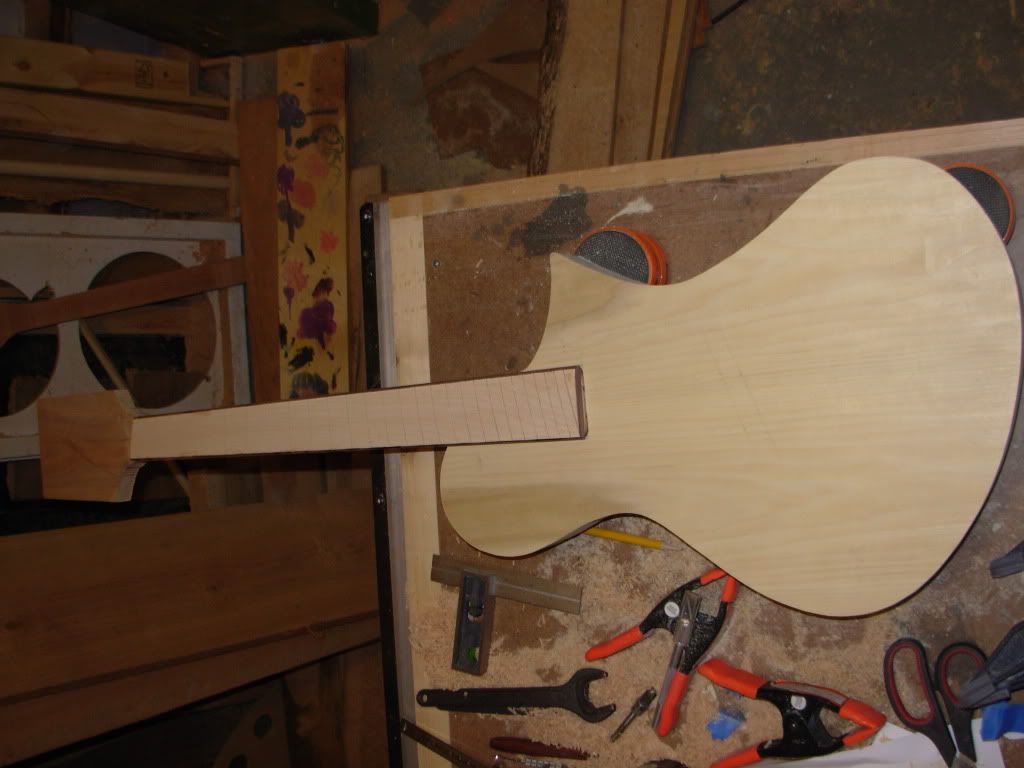
-
I know they have a site, but their "contact us" button/page doesn't have any way to contact them.
-
Ricky, how would one get in contact with Aldridge Empire? Those are really great looking pieces.
-
I am in the process of my first multi scale build and plan to use single saddles and some aluminum angle, make my own saddle mounting brackets, and mount those. Then again, WesV's idea could also work with some Indian Rosewood that I have. Hmmm...this could be fun.
-
I built guitars last year for my then 2 and 4 year olds. I shrunk the body size to 3/4 using CAD. Then I just took a 25.5" scale length and lopped of the first couple frets. I kept neck width and string spread standard so that I didn't have to use any special parts. Turned out great. There is a build thread around here somewhere on them.
-
I would make sure that the body shape is the same as the one you will be comparing to, just to try to isolate all the variables. So try to replicate the original: carving, finish, shape, etc. This will help minimize some of the effects of the different vibration characterisitcs inherent in those items and further show the differences just between the parameters you are interested in. Having spent lots of time in labs and doing experiments, you want to make sure that you are really only testing what it is that you want to test and not some unknown artifact.
-
I certainly sounds like a moisture problem. Do you have a separator or dessicant inline with your air supply? I would also try to wait for lower shop humidity if at all possible.
-
I built a tele last year with low pass, high pass, band pass, and notch filters all on board with selectable caps using different combos of the caps and inductors. My next idea is to try muli-pole filters onboard just for the heck of it. I think a 3rd order Butterworth or perhaps a Bessel filter would be a lot of fun. Filter design was one of my most enjoyable classes and I find that I use it a lot, especially working on radar by day and guitars and amps by night.
-
I am going to be making some custom sized knobs for stacked pots and this should help things along nicely, thanks for posting.
-
That looks like a standard day for my bench. I am almost finished building a new traditional woodworking bench. The top alone weighs about 150 pounds and doesn't move at all with full body weight even with the top just laying on top of the base. I'll post pics when it's up and running.
-
I've never heard of brazilian koa? Where did you go about finding it?
-
I've used mahogany that looks like that before. It's african mahogany and not genuine or "honduran" mahogany, though.
-
Just wondering if anyone has a couple indian rosewood binding strips they could sell me so I don't have to put in a full order to stewmac or some other such place. I really just need enough to bind a fretboard that is about 19-20" along each side. Thanks.
-
Check out this site. You will need to adapt the body style for a 7 string on your own, though.
-
If this is your first build, I would highly recommend holding off on the nice wood and ambitious build of an arched top guitar until you have at least one or two simpler builds under your belt. The caps are typically 3/4" thick, but usually for an arched top you will have something like a spruce top with a maple veneer, as a solid maple cap wouldn't allow for as much acoustic projection from the instrument. Of course, you can make it whatever you want.


Blues Guitar
in Players Corner
Posted
Make sure to make the painful pinched face whenever you bend a note, with the face pinching proportional to the amount of the bend. Additionally, there is a guy on youtube that does some interesting stuff with his four note blues. Then again, he's only excluding one note from the minor pentatonic, but still, he's got some nice licks.